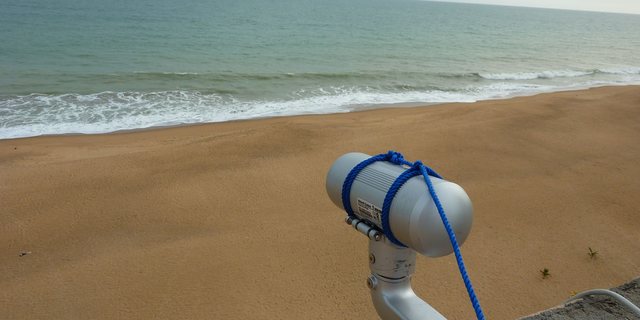The IRD supports ‘Protect to Share’ and strives to make its economic value optimisation practices for research compliant with its vision of science. It aims to maximise the value of its research, with a view compensating contributions fairly and optimising access to research results for scientific communities and populations in developing countries and the overseas regions.
With research partnerships, scientific service provision, corporate sponsorship, transfer of biological materials, confidentiality agreements, co-ownership agreements concerning intellectual property, licence agreements, and the like, an increasing number of researchers are turning to public-private partnerships to bring their research work to fruition. These research partnerships, signed with industrials, entrepreneurs, NGOs, professional associations, and corporate foundations, encompass the themes of the Institute's five scientific departments. In 2016, 118 agreements were signed for a total amount of over €5.6 million.
IRD’s portfolio comprised 116 patent families at the start of the year butt underwent significant rationalisation in 2016. Each patent family has been ranked according to the priority levels, according to commercial opportunities and the age of the family. This portfolio review resulted in the surrender of all patents with little or no commercial potential. Hence, at the end of the year, the portfolio only contained 71 patent families. There will be further rationalisation of the patent portfolio in 2017 with a breakdown of patents into four categories with much more demanding criteria in terms of commercial opportunities.
Almost all the patents in the portfolio have been assigned to the Valorisation Sud technology transfer consortium (CVT) to seek prospects for licence agreements for industrial and commercial use. The involvement of Valorisation Sud resulted in the signature, between IRD and the research agency of the Indonesian Ministry of Fisheries and Maritime Affairs (AMAFRAD), of two new licence agreements with the companies TECHNIVAL (French Polynesia) and MUTATEC (mainland France) for the use of jointly owned know-how and technology. The projects concern the bioconversion process in which the insect Hermetia Illucens converts nutrients from oil palm press cakes. These companies therefore produce the insect as live food for pets (birds, turtles, fish, etc.), providing a protein source that partially replaces other animal products such as fishmeal, and to recycle by-products as biofertilizers.
More than a hundred innovative entrepreneurs of various origin receive support via the schemes devised and set up by IRD: Bond’Innov (France), iNCubateur in Nouméa (New Caledonia), Meet Africa – the new support programme for the start-up of innovative businesses in Africa, and internal support for spin-off activities.

Waves’n See was founded in Toulouse in 2016 by Yves Soufflet and Clément Mayet, both oceanographers and former post-doctoral research students at IRD. This start-up uses and develops the Wavecams technology that resulted from coastal oceanography research work at IRD.
In June 2016, Expertise France, Campus France, IRD and GIZ (the German international cooperation agency) launched the programme entitled ‘Mobilisation Européenne pour l’entreprenariaT en Afrique – MEET Africa’ (European mobilisation for entrepreneuring in Africa). It is a European support scheme for entrepreneurs from the diaspora and pools the resources of the previous support set-ups run by IRD (Paceim), Campus France (Entrepreneurs in Afrique) and GIZ (Business ideas for development). MEETAfrica aims to help 80 graduates from the French and German higher education systems set up a hi-tech or innovation-driven company in the agricultural, industrial or service sector in their home country (Algeria, Cameroon, Mali, Morocco, Senegal and Tunisia). To see through their project, the entrepreneur will have access to a maximum budget of €15,000 for logistics, strategic, business, technological and scientific support, originating in the North before been carried over to the home country.
The programme receives funding of €1.7 million from the European Union Pan-African Programme.
To speed up the economic integration of start-ups from the diaspora, IRD and the Institut Français in Tunisia, in partnership with the Tunisian agency for the promotion of industry and innovation (APII) and the Tunisian entrepreneurship and spin-off association (ATUPEE), give young entrepreneurs the chance to meet mentors and benefit from business advice and assistance within their ecosystem. The aim is to facilitate their understanding of the territory, and make up for their lack of knowledge of people and businesses in the ecosystem and their lack of a local professional network. To this end, sector-based technical centres, technology hubs, business incubators and company representatives in Tunisia may be identified as being able to provide professional expertise to start-ups. Fifteen beneficiaries came together in Tunisia on 13-14 December last year and met more than 20 mentors.
As part of the support project for the modernisation and reform of universities and higher education establishments in Cote d'Ivoire (AMRUGE-CI), IRD has been mandated by Ministry of Higher Education and Scientific Research to strengthen Côte d’Ivoire’s research and innovation system. As such, it is involved in training and capacity-building actions run by research centres and universities in the country, and may run studies and appraisals to identify levers and stimuluses to boost research. A seminar was held in 2016 with the CURIE network to share national promotion models from France, Brazil (FORTEC) and Côte d’Ivoire (MESRS).